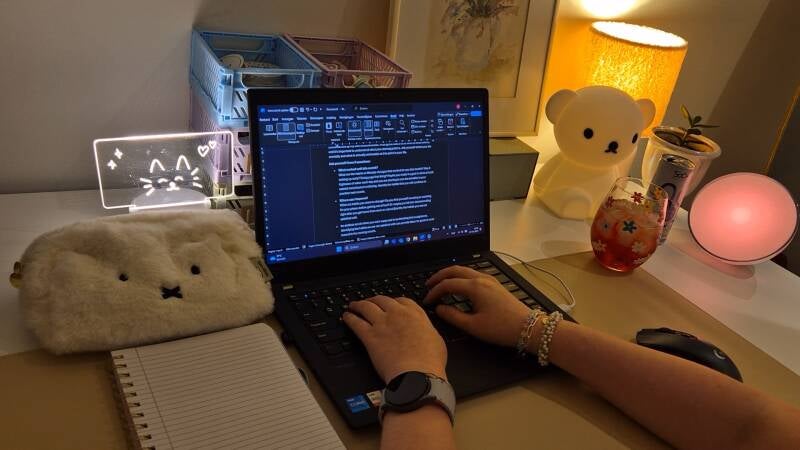Study Tips for University Success: A Student’s Perspective
Navigating university can be challenging, especially when it comes to balancing coursework, extracurriculars, and social life. Here’s a list of effective study tips from a fellow student who’s been through the ups and downs of exams, group projects, and late-night study sessions. These tips are realistic, adaptable, and designed with university life in mind.

1. Set Realistic Goals
The biggest mistake I made early on was setting sky-high goals without a clear roadmap. Now, I break down my larger goals into smaller, weekly targets. For example, instead of saying, “I need an A in Organic Chemistry,” I set a goal like, “I’ll study for 2 hours every day this week focusing on Chapter 3.” When your goals are small and manageable, it feels easier to get started, and you see real progress over time.
2. Develop a Flexible Study Schedule
The truth is, no matter how much we plan, life happens. Some weeks are lighter; others are a storm of deadlines. Creating a study schedule that has flexibility built in helps me adapt without getting too stressed. I start by setting up blocks of time each day for studying but always leave an hour open as a “catch-up” period. That way, if I miss a session, I already have a time slot to make it up.
3. Find a Study Method That Works for You
Not every study technique suits everyone, so finding what works best is key. Here are some common methods to experiment with:
Pomodoro Technique: Study for 25 minutes, take a 5-minute break. Repeat four times, then take a longer 15-30 minute break. Click here to go to my personal pomodoro playlist
Feynman Technique: Explain the topic to yourself (or someone else) as if you’re teaching it. This exposes gaps in understanding.
Active Recall and Spaced Repetition: Test yourself regularly on key concepts over spaced intervals to reinforce learning.
Try each method on a small scale and see what clicks. Personally, I love the Pomodoro Technique for subjects that require intense focus and active recall for memorization-heavy classes.
4. Make the Most of Campus Resources
University libraries, tutoring centers, and study groups are gold mines of support. In my first year, I didn’t use them enough, but now I realize how valuable they can be. Campus libraries often have quiet study areas, access to textbooks, and online journal subscriptions. I also found that joining a study group can bring fresh perspectives and make the material feel less daunting.
5. Embrace Digital Tools (But Set Boundaries)
Digital tools like Notion, Quizlet, and Google Calendar can be lifesavers, helping you stay organized and retain information. I use Google Calendar to block out my classes, deadlines, and study time. Notion helps me keep all my notes and tasks in one place, making it easier to review for exams.
That said, tech can be a double-edged sword. Try not to fall into the rabbit hole of using study apps as an excuse to avoid actual studying. I set a boundary where I only use these tools for about 20 minutes before starting a study session.
6. Take Care of Your Physical and Mental Health
It’s so easy to forget self-care when you’re in the midst of midterms or finals, but maintaining balance is crucial. I make a point to get at least 7 hours of sleep because I’ve realized my brain just doesn’t work well when I’m tired. Quick workouts, even if it’s a 10-minute jog, clear my mind and reduce stress. On particularly rough days, taking a break to grab coffee with a friend or go for a walk can do wonders for your focus!
7. Create a Study Environment That Works for You
Not everyone works well in a completely quiet library or a noisy coffee shop. Experiment with different study spots until you find one that suits your style. I personally like switching up my study environments based on what I’m working on. For readings, I like the quiet library, but when I’m working on creative projects, a cafe with background noise gets my ideas flowing. It’s also helpful to have a dedicated study spot in your dorm or apartment that’s clutter-free and comfortable.
8. Practice Self-Compassion
Finally, remember that everyone struggles sometimes, and it’s okay not to be perfect. There are weeks when I’m on top of everything and weeks when I barely make it through. Instead of beating myself up, I try to treat setbacks as learning experiences. Adopting this mindset has made a huge difference, allowing me to stay motivated even after a bad exam or missed deadline.
I make my study with me videos using the pomodoro method,
Feel free to join me on your next study session!
University life is full of challenges, but finding study strategies that fit your lifestyle can make it much easier to navigate. Remember that there’s no single “right” way to study; it’s all about figuring out what works best for you. Good luck, and don’t forget to enjoy the journey!
Reactie plaatsen
Reacties